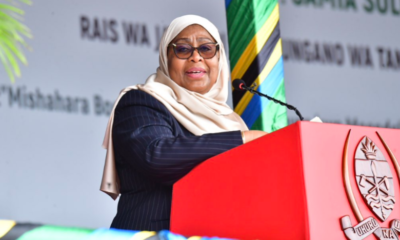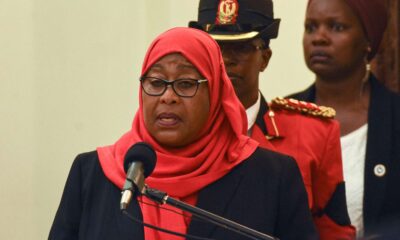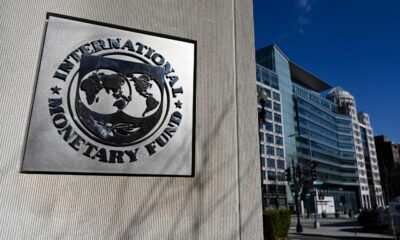A conversation I have been having with my compatriots can suffer some escalation to the regional level, especially because our different countries have had largely similar experiences in many respects.
In the 1960s, Dar es Salaam had a more or less efficient bus transport service, run by the Dar es Salaam Motor Transport Company (DMT) organised along lines not dissimilar to the London metropolitan bus service. The city service once even boasted double-deck buses, immortalised in the Kilwa Jazz song, Kifo cha Penzi ni Kifo Kibaya.
The buses ran on strict timelines, and when a bus scheduled to pass by a stop at 7.15 came at 7.20 people waiting at the stop would be seen impatiently looking at their watches.
Some of us in the media would take the matter up as soon as we got to our newsrooms to ask of the transport company officials why our bus had delayed a full five minutes on a working day.
By 1983, the company had been nationalised and called Usafiri Dar es Salaam (UDA) and soon acquired the distinctive Ikarus articulated buses manufactured in Hungary, but soon even thy ran out of steam because of the usual, multifaceted problems attaching to public owned institutions.
Around that time, then prime minister Edward Moringe Sokoine decided to bring in minibuses operating in Arusha and Moshi to rescue Dar es Salaam “temporarily, while the government is making plans for a permanent solution” to the problem.
From that period, it is only now that Dar es Salaam is beginning to see what looks like that “permanent solution” with the introduction of the Dar es Salaam Rapid Transport (Dart), which was initiated by a former mayor, the late Kleist Sykes.
Political skulduggery
It was delayed for so many years due to political skulduggery and the inevitable corruption in all our public institutions.
In the meantime, a former transport minister, Harrison Mwakyembe, had the rare presence of mind to remember that the city had had, since colonial times, railway tracks linking different districts but which lay fallow; he took action, and this initiative — which created what has come to be dubbed as “Mwakyembe’s train” — has contributed to the easing of the transit system congestion, but only just, because of issues such as the infrequency of train rides and the lack of security lights, ventilation and so on.
As it is right now, the Dar Rapid Transit is hobbling along, packing the human press the way you would pack cattle if you are not a keen meat seller.
Surely, our people deserve better than that, and the so-called “Mwakyembe train” needs replication in other parts of the city, as I suspect, there are many other fallow railway tracks waiting for some smart alecks to collect them and sell them as scrap metal.
Amidst all this, we have young people with hardly an income to speak of dying to own and drive a personal car, not for anything else but that owning a personal car makes them “somebody.”
What I have been telling them is, you do not have to own a car to be somebody; you are somebody because you are a useful member of society, and, surely, if you are predicating your personality on ownership of material things, you’re not.
What our young people — including not-so-young people, like me — should be doing is to militate for public transport to be expanded, and for it to work well; that is what they do in Europe and the US. The collaborative cries should be for Dar rapid service to improve: This past week, I was in the Coast region and wanted to ride on the service, only to be told by the bored girl at the stop that they had no tickets. Shame!
I understand there is too much red-tape restrictions in the processes attaching to getting more buses run by private operators. If that is so, what are the myriad officials running around like headless chickens doing?
Luxury cars
Why are they paid all the big salaries and allowed to drive such luxury cars if they cannot do a repeat “Mwakyembe train,” increase buses, and ensure tickets are available for rapid-transit bus rides?
These should be the issues our young people have to be fighting for not driving their cars, except if they belong to the Diamond Platmuz or Ali Kiba cohort.
With an efficient public transit system, we all become part-owners of our collective means of transport.
The opposite of that is when you forget what a car is for and you begin to think like the backward tribesman for whom the car is a mystical contraption which confers miraculous powers on the owner and driver, a far cry from the evolved, modern citizen.
Unfortunately, I know I am preaching to the unhearing, but this should not discourage anyone.
In the fullness of time, the message will sink home when the hordes of the lumpen motorcar realise they have more important things to seek for their lives to be better and more meaningful, instead of the trinkets that are being dangled before their noses.
I stand ready, as ever, to engage in a conversation.


 Sports1 day ago
Sports1 day ago
 Metro1 day ago
Metro1 day ago
 Metro14 hours ago
Metro14 hours ago
 Tech1 day ago
Tech1 day ago



























